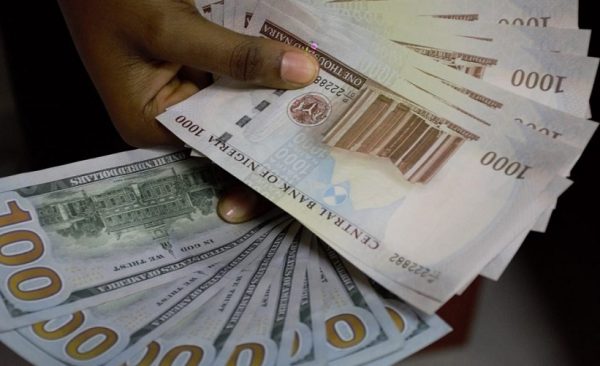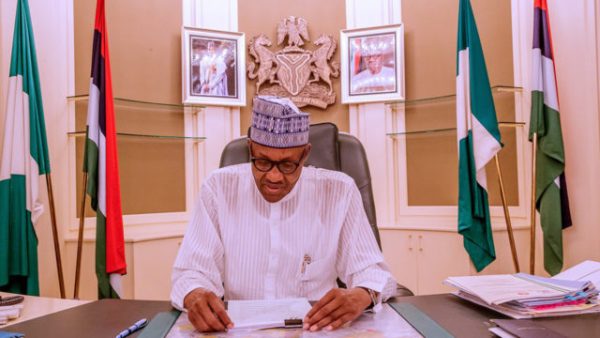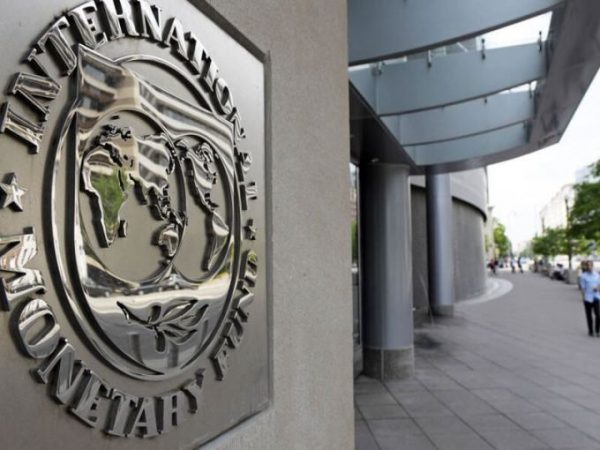Naira Strengthens At Parallel Market, Weakens On Official Window
In the past week, the naira experienced a mixed performance across various segments, reflecting the Central Bank of Nigeria’s ongoing efforts to stabilise the currency.
Analysts said that forex market interventions from the CBN have slowed down amidst a decline in external reserves, which stood at $39.09bn as of Thursday. The decline in the foreign reserves commenced in January and has been sustained into this month.
At the parallel market, the naira strengthened to about 1,552/$ from 1,660 in the previous week, and players in the segment put the appreciation down to improved investor confidence.
At the official Nigerian foreign exchange market, the naira faced ongoing demand pressure.
According to the Meristem weekly report, the naira depreciated by 0.54 per cent week-on-week to 1509.70/$ from 1,501.61/$.
The President of the Association of Bureau De Change Operators, Aminu Gwadebe, in a chat with media, expressed optimism about the appreciation of the naira.
He said, “The performance of the naira was significantly positive. Naira performed positively throughout the past week from about 1660; we are now talking about 1552/$. That is significant.
“Providing insights into some of the drivers, Gwadebe said, “a combination of factors are playing together. The pick-up of the interbank proceeds to Bureaux de Change as directed by CBN is helping to inject liquidity and reduce panic in the market. Others are linking it to the Chinese holiday, which has possibly reduced the demand aspect. Thirdly, the FX Code has continued to bring some sanity, discipline, and monitoring oversight, and fourth, the confidence of the investor.”
“The market, especially the interbank, is awash with portfolio inflows. Also, there is no negative perception. All along, we have been battling with a negative perception, with confidence in even the management of the Central Bank, but they have been able to put some confidence in them now, especially since they have cleared the $7bn (FX) backlog, and the impact of the policy is making the CBN put their foot on the ground to ensure the reforms continue to give positive reports. They are doing a lot of forward guidance so that they can communicate with investors, operators, and other stakeholders. I think that approach has been giving a lot of people hope that the CBN has resolved to engage with stakeholders and work with them.”
Analysts at Cowry Assets Management Limited, in their weekly market report, project that in the coming week, the naira is expected to trade within a relatively stable range, “provided there are no significant market distortions. Market dynamics will continue to shape the supply and demand for the dollar, influencing the local currency’s performance across various exchange segments.”
The naira has appreciated in recent times due to a combination of factors, including the $7bn foreign exchange backlog’s clearance and improved liquidity in the market.
Governor of the Central Bank of Nigeria, Olayemi Cardoso, announced that the Federal Government had cleared the backlog of $7bn in foreign exchange following a successful verification exercise by forensic auditors.
Speaking at the launch of Nigeria’s Regulatory Policy Framework organised by the Presidential Enabling Business Environment Council, Cardoso expressed an optimism that the clearance of the backlog would ease off the bottlenecks associated with the repatriation of funds by businesses, multinationals, and foreign investors.
He said, “In addressing foreign exchange liquidity constraints, decisive steps have been taken to clear the outstanding $7bn forex backlog to ensure that businesses, multinationals, corporations, and foreign investors can repatriate funds seamlessly.
Meanwhile, investment company Comercio Partners has projected that the naira is expected to drop to about 1,700/$ at half-year.
In its 2025 macroeconomic outlook titled ‘Looking Forward to the Future,’ Comercio Partners said the reliance on oil imports will continue to keep the naira vulnerable.
It stated, “Nigeria’s reliance on fuel imports has remained one of the primary drivers of dollar demand, placing persistent pressure on the naira. The economy’s limited capacity to generate sustainable dollar inflows through exports further exacerbates currency instability. Moreover, fiscal policy often fails to align with monetary efforts, creating a fragmented approach to economic management. These structural deficiencies limit the effectiveness of short-term measures and contribute to the naira’s vulnerability to external shocks.
“While Eurobond issuances provide temporary relief to Nigeria’s exchange rate challenges, their impact is fleeting in the absence of structural economic reforms. The CBN’s interventions, including EFEMS and rate adjustments, demonstrate the potential for short-term stabilisation but fall short of addressing the naira’s underlying vulnerabilities. As Nigeria moves into 2025, the combination of reduced fuel imports, improved investor confidence, and high-yield investment opportunities creates a pathway for stability. We project that the naira will close the first half of 2025 (at) N1,700-N1800 per dollar. However, only a holistic, coordinated effort between monetary and fiscal authorities can ensure sustained currency appreciation and broader economic resilience in the years ahead.”






